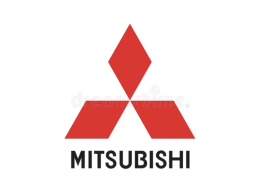by Seamus Sullivan, Smead Capital Management
Dear fellow investors,
In previous missives, we have gone into considerable detail regarding the historic ascent of index concentration, coupled with the heightened prevalence of passive investing. Fundamentally, both of these phenomena share a common deficiency—a lack of independent thought. Prominent figures such as Howard Marks, David Einhorn, and Ben Inker at GMO, individuals whom we deeply respect, have consistently underscored the necessity of conducting one’s own research, forming independent conclusions, and always incorporating a margin of safety. They contend that adhering to these principles is vital for achieving differentiated performance compared to the broader market.
At Smead Capital Management, prioritizing independent research is not only integral to our evolution as investors but also reflects our commitment to those on whose behalf we invest. Being different is inherently uncomfortable in every possible way, and although it doesn’t guarantee superior returns, we consider it a prerequisite for potential outperformance. As Marks put it, “The real question is whether you dare to do the things that are necessary in order to be great. Are you willing to be different, and are you willing to be wrong? In order to have a chance at great results, you have to be open to being both.”1
Needless to say, our belief on where value is situated in today’s markets diverges from the consensus. We see today’s investment psychology as a combination of the Nifty Fifty era and the Tech Bubble. It’s a dangerous combination of investors enthusiastically allocating large percentages of their capital to ten or fewer companies, with little thought as to why, other than it’s the easy decision. This lack of any need for independent thought has been persistently reinforced through market capitalization growth fueled by valuation-agnostic passive investment vehicles. Flywheel engaged. And as you can see, endowments, often considered “smart money,” have capitulated as well.
The prevailing strategy of holding the largest names to prevent underperformance against benchmarks might be comfortable, but we believe is misguided. Many at Smead played sports at some point in our lives, and before going into a tournament, coaches would tell us, “Don’t play to not lose, play to win” (i.e., play with the mindset of winning rather than merely avoiding defeat). It makes perfect sense. By actively pursuing victory, we inherently fortify ourselves against the pitfalls of a defensive mindset. It means investing in the companies we understand, meet our eight criteria, and we have high conviction in, regardless of how out of favor or disliked they are. If the company does not meet our criteria, we don’t invest, no matter how loved by the market. Why would you pay us to invest in companies we have no unique insight into, are the most widely held on the planet and are priced to perfection?
Producing superior results requires two things. Being right and being different than the crowd. Independent thought and research transcend being mere slogans or lip service; they are principles deeply ingrained in our approach. A quick glance at our portfolio is all the proof needed. Think about how out of favor home builders have been over the last two years. It’s only recently that the market has started to grasp the supply and demand dynamics at play. Our jobs as investors are to read a lot, deeply understand the companies we are invested in and allocate capital where we feel it will receive the best returns. Often, the best returns are found in unloved companies where near-term headwinds abound and little to no light exists at the end of the tunnel. As we are not market timers, this can mean we are early and have to wait out occasional unpleasant price changes. If this were not the case, the return opportunity would not be there.
We ask of ourselves what we ask of our investors. As an employee-owned firm, we are side by side with our investors. This ensures that our incentives are aligned, as we navigate through the highs and lows in lockstep. We owe it to our investors to make difficult and uncomfortable decisions and if there is pain involved in an investment, we feel it as well.
Thinking independently and diverging from the crowd is uncomfortable, but it can be highly rewarding.
Fear stock market failure,

Seamus Sullivan
The information contained in this missive represents Smead Capital Management’s opinions, and should not be construed as personalized or individualized investment advice and are subject to change. Past performance is no guarantee of future results. Seamus Sullivan, Senior Analyst, wrote this article. It should not be assumed that investing in any securities mentioned above will or will not be profitable. Portfolio composition is subject to change at any time and references to specific securities, industries and sectors in this letter are not recommendations to purchase or sell any particular security. Current and future portfolio holdings are subject to risk. In preparing this document, SCM has relied upon and assumed, without independent verification, the accuracy and completeness of all information available from public sources. A list of all recommendations made by Smead Capital Management within the past twelve-month period is available upon request.
©2024 Smead Capital Management, Inc. All rights reserved.
This Missive and others are available at www.smeadcap.com.















